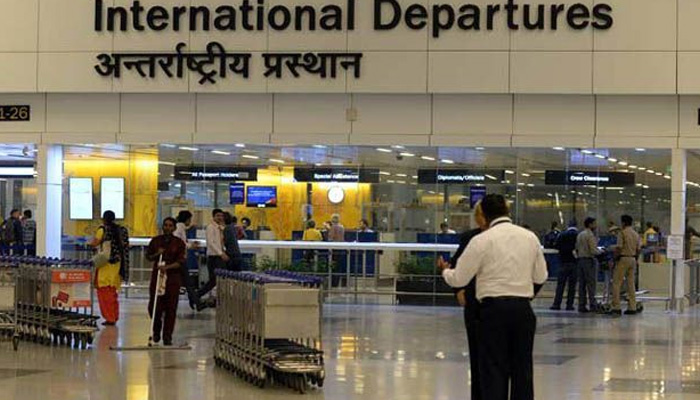'ISI spy' who sought asylum at Delhi airport help desk may be mentally unstable
Sat 29 Apr 2017, 20:08:27

A man who turned up at Delhi airport on Friday and identified himself as an ISI agent seeking political asylum may be suffering from a personality disorder, intelligence agency sources said on Saturday.
Ahmed Mohammed, 39, arrived on a Dubai-Kathmandu Air India flight with a stopover at the Indira Gandhi International Airport on Friday morning. He walked up to a helpdesk and is said to have stated that he wanted to give up spying and stay in India. This was the first time anyone had made such a claim, in such a manner.
"So far, from the interrogation, we could find nothing substantial that validates his claim. Prima facie it seems he suffers from personality disorder," an Intelligence Bureau official said, wishing to remain unnamed.
Mohammed was carrying a Pakistani passport - bearing the number KF 088779 - which showed his date of birth to be July 9, 1978 and his residence in Gulshan Colony of Faisalabad, the third-most populous city in Pakistan.
Indian officials continued to question him for the second day on Saturday, and also tapped into sources in Dubai and other friendly intelligence agencies to verify Mohammed's identity and his claims.
But the unprecedented incident has left officials in the security establishment grappling with a question: how do you handle if a spy walks up to Indian immigration counter?
Mohammed is currently in the custody of IB's counter-espionage group, being interrogated at a 'safe house' by officials from the agency as well as the Research and Analysis Wing (R&AW), the country's external spy agency.
IB is responsible for domestic intelligence aspect and in usual circumstances, it passes along
intelligence inputs to police, who then apprehend suspects.
intelligence inputs to police, who then apprehend suspects.
But in this case, Mohammed has not violated any Indian law. He has a valid transit visa and was apprehended within the immigration gate. He is not wanted in India for any crime.
Two senior IB officials independently said there was no precedence of a Pakistani national claiming to be an ISI agent having approached Indian authorities within the country.
Although there have been instance where alleged spies have approached Indian missions abroad.
A senior R&AW official, who has handled the Pakistan desk, said, "Normally in the intelligence world, we look for his utility and once his bona fides is established, we offer him a new identity, citizenship and security."
In the present case none of it is applicable, and that leaves the government with two options: either deport him to Dubai, where he came from, or inform the Pakistani high commission in Delhi to give him consular access.
A call will be taken on Monday, and until then he is likely to remain in IB custody, one of the sources said.
Mohammed purportedly told his interrogators that he works for the ISI but wants to work for India now, sources added.
News reports quoted Mohammed as revealing that the ISI had kept his family captive to prevent him from quitting his job as an assassin.
Both India and Pakistan frequently announce arrest of each other's spies but instances of such agents turning themselves in to an enemy country is rare.
The incident comes on the heels of a Pakistani military court sentencing an Indian national, Kulbhushan Jadhav, to death for spying. India has denied the charges.
No Comments For This Post, Be first to write a Comment.
Most viewed from National
Most viewed from World
AIMIM News
Asaduddin Owaisi files nomination papers on Friday
Apr 20, 2024
Owaisi Begins Election Campaign in Hyderabad
Apr 13, 2024
Bring back Indian workers in Israel: Owaisi
Apr 13, 2024
Latest Urdu News
Most Viewed
May 26, 2020
Do you think Ruturaj Gaikwad would be a good captain for Chennai Super Kings?
Latest Videos View All
Like Us
Home
About Us
Advertise With Us
All Polls
Epaper Archives
Privacy Policy
Contact Us
Download Etemaad App
© 2024 Etemaad Daily News, All Rights Reserved.



.jpg)
.jpg)
.jpg)
.jpg)
.jpg)
.jpg)
.jpg)
.jpg)
.jpg)
.jpg)



.jpg)
.jpg)
.jpg)
.jpg)
.jpg)
.jpg)
.jpg)
.jpg)
.jpg)
















